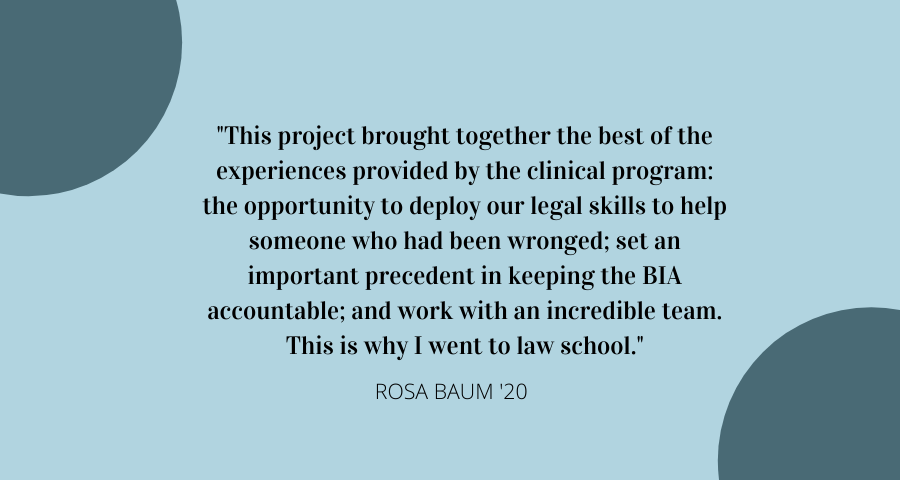
On January 28th, the First Circuit Court of Appeals vacated a decision by the Board of Immigration Appeals (“the Board”) to deny a motion to reopen the removal proceedings of Carlos Antonio Granados Benitez, a Honduran man with a pending U visa. Our Program, in collaboration with Make the Road New York and Paige Austin, filed a brief on behalf of Mr. Granados Benitez.
Law students Rosa Baum ’20, Austin Nielsen-Reagan ’22, and Eric Noble-Marks ’22 helped draft the brief, working under the supervision of Crimmigration Clinic Director Phil Torrey and Clinical Instructor Cindy Zapata. The brief argued that the government miscategorized Mr. Granados Benitez’s motion to reopen and remand as a motion to terminate and that Mr. Granados Benitez exhausted his request for relief, for which he was clearly eligible.
“One thing that struck me about working on this project was how much Mr. Granados Benitez’s humanity and his painful real-life situation were erased from the picture, seemingly of trivial concern to immigration authorities and our judicial system,” said Nielsen-Reagan. He pointed to the government’s argument that deportation would not legally interfere with Mr. Granados Benitez’s U visa application, as he would technically remain eligible if he was abroad, demonstrating a clear disregard for the devastating effects deportation would have on their client and his family. Ultimately, the First Circuit agreed with the arguments made in the Program’s brief, stating in the decision that the Board “abused its discretion by failing to conduct a proper analysis, failing to consider its own policies and precedents, and ignoring the position of its sister agency, ICE.” Mr. Granados Benitez no longer faces imminent deportation.
“Being part of this project was easily the highlight of my semester,” said Baum. “It brought together the best of the experiences provided by the clinical program and the practice of law writ large: the opportunity to deploy our legal skills to help someone who had been wronged; set an important precedent in keeping the BIA accountable; and work with an incredible team. This is why I went to law school.”